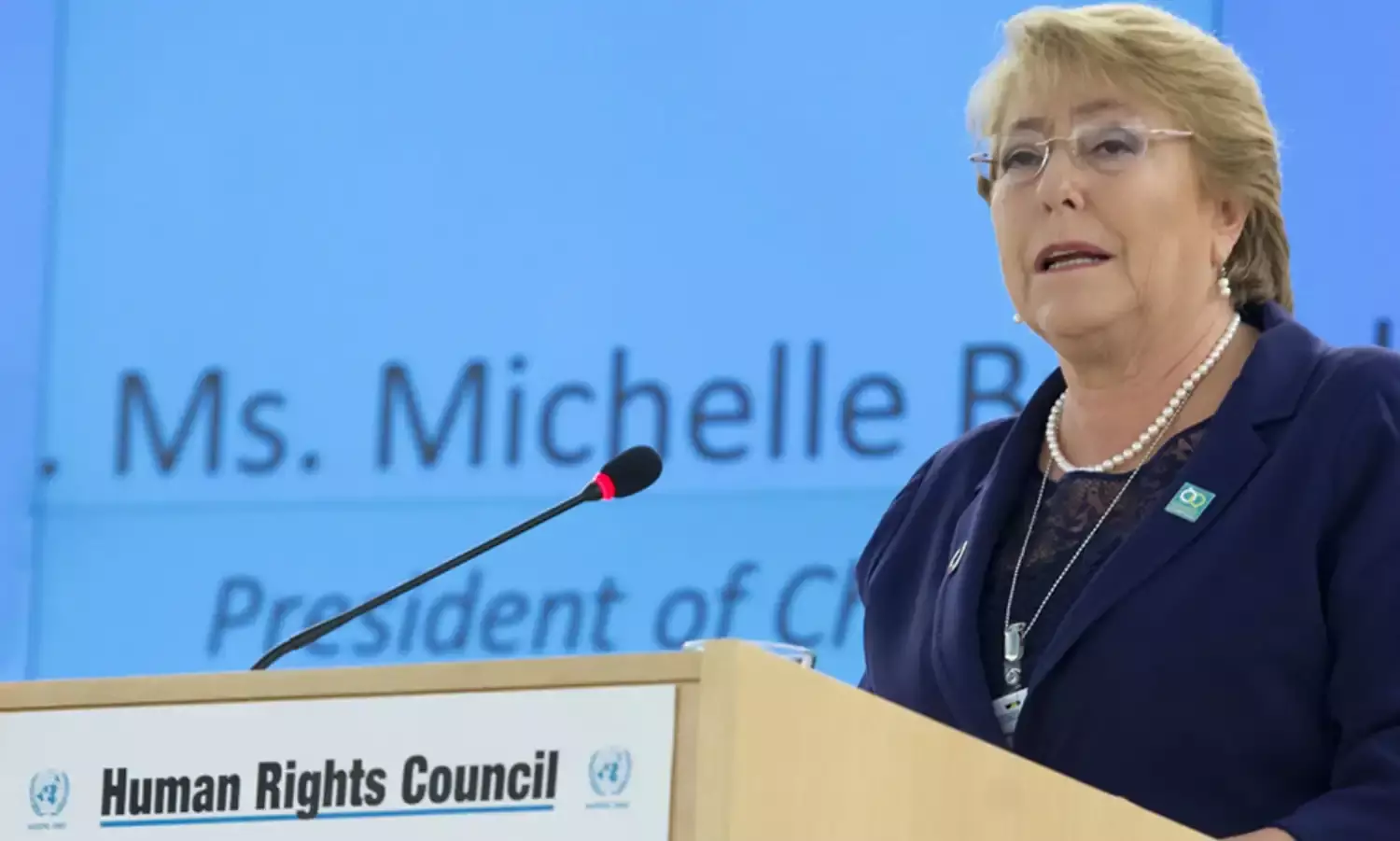UN Human Rights Chief Warns India Against ‘Divisive Politics’ Targeting Minorities
Saudi Arabia, Israel also singled out for mention

U.N. human rights chief Michelle Bachelet warned India on Wednesday that its “divisive policies” could undermine economic growth, saying that narrow political agendas were marginalising vulnerable people in an already unequal society.
“We are receiving reports that indicate increasing harassment and targeting of minorities – in particular Muslims and people from historically disadvantaged and marginalised groups, such as Dalits and Adivasis,” Bachelet said in her annual report to the U.N. Human Rights Council in Geneva.
Bachelet's warning came a day after Amnesty International's India chapter said it had recorded a "disturbing" number of hate crimes, including assault, rape and murder, against marginalised groups in 2018.
Amnesty on Tuesday said it had documented a total of 218 incidents of alleged hate crimes last year. Some 142 were against Dalits, while 50 were against Muslims. By contrast Dalits and Muslims form only about a third of the Indian population.
Bachelet also criticised Saudi Arabia on human rights violations. “Today, allow me to voice my concern at the apparently arbitrary arrest and detention, and alleged ill-treatment or torture, of several women human rights defenders in Saudi Arabia,” she said.
She called on Saudi Arabia to release women activists allegedly tortured in detention after authorities accused them of harming the country’s interests.
Bachelet rebuked the Israeli government for its “immediate dismissal” of a report on possible war crimes it committed during protests in Gaza, “without addressing any of the very serious issues raised.” She called for both countries to exercise restraint before the first anniversary of the Gaza protests on March 30, and recommended Israel be referred to the International Criminal Court.
Bachelet also called on China to allow UN investigators to visit its Xinjiang region to verify reports about abuses against Uighur Muslims. Despite many Uighurs and Xinjiang experts’ interpretation about the “violent episodes,” Bachelet believes that “stability and security in this region can be facilitated by policies which demonstrate the authorities’ respect of all people’s rights.”
“Inequalities stir grievances and unrest; fuel hatred, violence, and threats to peace; and force people to leave their homes and countries. Inequalities undermine social progress, and economic and political stability. But human rights build hope. They bind humanity together with shared principles and a better future, in sharp contrast to the divisive, destructive forces of repression, exploitation, scapegoating, discrimination–and inequalities,” said Bachelet at the end of her report.
(Agencies)



